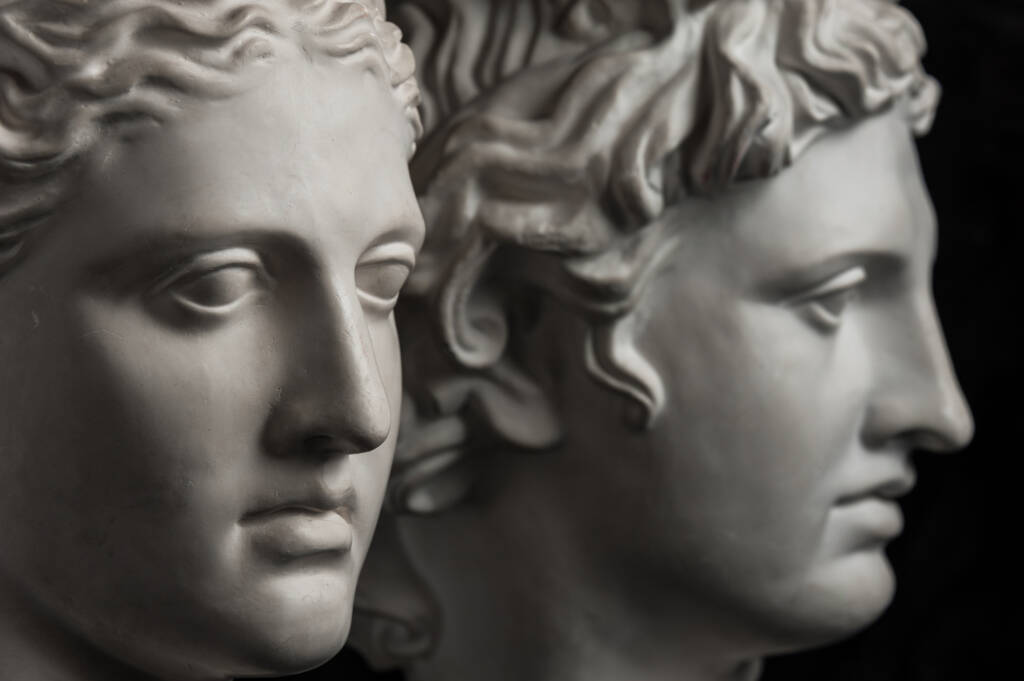
History of the Holocaust

Holocaust education requires a comprehensive study of not only times, dates, and places, but also the motivation and ideology that allowed these events. In this course, students will study the history of anti-Semitism; the rise of the Nazi party; and the Holocaust, from its beginnings through liberation and the aftermath of the tragedy. The study of the Holocaust is a multi-disciplinary one, integrating world history, geography, American history, and civics. Through this in-depth, semester-long study of the Holocaust, high school students will gain an understanding of the ramifications of prejudice and indifference, the potential for government-supported terror, and they will get glimpses of kindness and humanity in the worst of times.
Major Topics and Concepts
- Understand the history of anti-Semitism in the Christian West.
- Recognize the role anti-Semitism played in the rise of the Nazi party.
- Use a timeline to develop a sequence of events in Nazi Germany.
- Learn how these events, including restrictive laws and Kristallnacht, contributed to the Holocaust.
- Consider the role of the general population in allowing or objecting to anti-Semitism.
- Describe the geographical progression of the Holocaust into Eastern Europe.
- Discuss the function of the Jewish ghetto for the Nazi party.
- Discuss the suffering within the ghetto and the Jewish response.
- Analyze the Einsatzgruppen and their role in the mass killing of the Jews.
- Discuss local responses to Nazi actions, from heroic resistance to cooperation.
- Discuss the early history of the concentration camps.
- Develop a thorough knowledge of the organization of the camps. Explain the roles of the SS guards and administrators within the concentration camp system.
- Recognize the variety of prisoners held within the camps and the groups persecuted by the Nazis. Discuss the conditions within the camps and the experiences of the prisoners within the camps.
- Explain the Madagascar Plan and the reasons for its failure.
- Discuss the 1941 plans and preparations for the Final Solution.
- Explain the importance of the Wannsee Conference, as well as the differences between the Final Solution as described at the Conference and the Final Solution as it was implemented throughout Europe.
- Discuss the role of Operation Reinhard as part of the Final Solution.
- Explain the arguments for and against both intentionalism and functionalism in the study of the Holocaust and Final Solution.
- Discuss the function and workings of a Nazi death camp. Describe the living conditions and behavior of the SS and the SS auxiliary workers in the extermination camps. Describe the conditions for prisoners chosen to survive in the camp.
- Explain the dehumanization of the prisoners, both as workers and subjects for medical experimentation.
- Discuss the death marches across Europe in the last months of the war.
- Discuss Nazi attempts to hide or cover up the genocide of the Jewish peoples of Europe. Explain the actions and reactions of Soviet troops and the Soviet government to the first liberated camps. Discuss the American response to the liberation of the Ohrdruf, Buchenwald, and Dachau concentration camps. Recognize and describe the conditions in Bergen-Belsen and explain the reasons for those conditions. Explain the importance of displaced persons camps and emigration in the aftermath of the Holocaust.
- Describe the impact of the Holocaust on non-Jewish populations.
- Discuss the importance of social, sexual, physical, and racial conformity within the Third Reich.
- Define and describe Aktion T-4 and the reaction surrounding it.
- Recognize the racial motivations behind the killings of Romani, Poles, and other Slavs.
- Discuss the differing treatment and motivation for groups of prisoners under the Nazi administration.
- Discuss the planned war trials, including the creation of the International Military Tribunal.
- Describe the timeline and chronology of the war crimes trials.
- Describe the progression of the Nuremberg Trials.
- Explain the role of Nazi hunters, including Simon Wiesenthal.
- Discuss the importance of the Eichmann trial and how it varied from earlier trials.
- Discuss the long-term psychological implications of the Holocaust for child and adult victims.
- Describe the coping strategies many Holocaust victims used to rebuild their lives and move forward.
- Describe the changes made to international law in the wake of the Holocaust.
- Describe the changing ethical guidelines of the medical community following the involvement of doctors in the Holocaust and Nazi party.
- Discuss and dispute the arguments of Holocaust deniers and recognize Holocaust denial.
- Recognize the legal definition of genocide, including the United Nations’ Genocide Convention.
- Understand the historical role of genocide outside of the Holocaust during the early 20th century.
- Discuss the genocides in Cambodia, Bosnia, and Rwanda.
- Recognize ongoing genocides in the Democratic Republic of the Congo and the Sudan.
- Consider taking action to help victims of genocide.
Competencies
Overview of Anti-Semitism
Students will demonstrate an understanding of anti-semitism by explaining historical factors that contributed to the rise of anti-semitism, describing concepts central to anti-semitism, and explaining the rise of the Nazi party.
Nazi Conquest of Eastern Europe
Students will demonstrate an understanding of the Nazi conquest of Eastern Europe by explaining the geographic progression of the Holocaust into Eastern Europe and describing life in the ghettos.
Confinement Camps
Students will demonstrate an understanding of confinement camps by explaining why concentration camps were established and how they were organized, and describing what life was like for prisoners.
The Final Solution
Students will demonstrate an understanding of the Final Solution by explaining the plans and preparation for the Final Solution, the events that led to Operation Reinhard, and the evolution of Operation Reinhard.
Extermination Camps
Students will demonstrate an understanding of extermination camps by describing the function and operation of extermination camps and explaining how some prisoners persevered.
Liberation of the Camps
Students will demonstrate an understanding of liberating the camps by describing the actions taken by the Nazis to eliminate evidence of the Holocuast, explaining how camps were liberated, and describing what happened following the liberation of the camps.
Non-Jewish Victims of the Holocaust
Students will demonstrate an understanding of non-Jewish victims of the Holocaust by explaining the role of Aktion T-4 in the Holocaust and the Nazi motives for targeting other non-Jewish groups.
The Nuremberg Trials
Students will demonstrate an understanding of the Nuremberg Trials by explaining the basis for the Nuremberg Trials, describing the defendants, and summarizing the trial proceedings.
Modern Genocides
Students will demonstrate an understanding of modern genocide by explaining the legal definition of genocide and describing examples of modern genocides.

